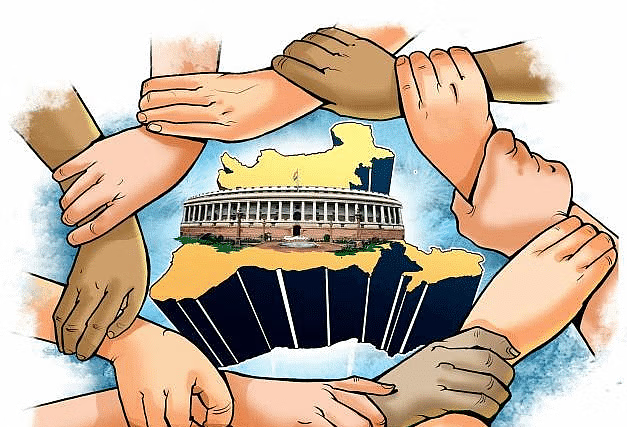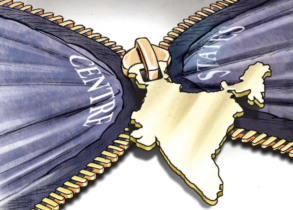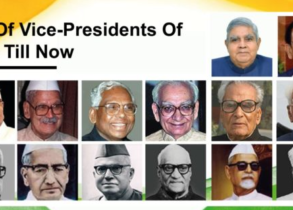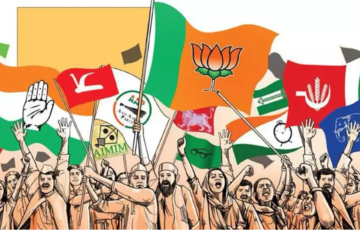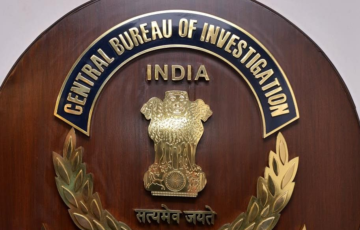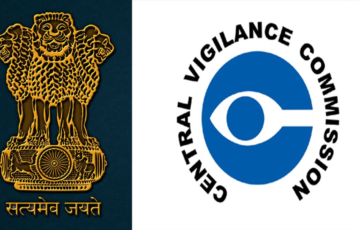INTER STATE RELATIONS
Meaning
- Inter-state relations in India pertain to the interactions and relationships between the various federal units, including states and union territories. These relationships are governed by the Indian Constitution, with administrative relations covered in Part XI and trade and commerce in Part XIII.
- The inter-state relationship in India is typically cooperative, with states collaborating to implement national policies, programs, and address common concerns. However, tensions can arise among states, particularly regarding issues like resource distribution and allocation of funds. Despite these occasional tensions, the overall framework of Indian federalism encourages cooperation and mutual engagement among the different states and union territories.
Nature of the Relationship Between States Under the Indian Federal Setup
- The dynamics of state government relationships in India are a product of the country’s federal governance structure. These relationships encompass cooperation, collaboration, and competition.
- Cooperative: State governments frequently engage in cooperation on matters of shared interest. This involves addressing issues like the equitable sharing of river waters, joint infrastructure projects, or regional economic development. To facilitate such cooperation, the Indian Constitution provides for the establishment of Inter-State councils, which aim to promote coordination and collaboration among states.
- Collaborative: State governments also engage in collaboration, not only with each other but also with the central government, especially when dealing with matters of national significance. This includes areas like disaster management, internal security, or international relations. The National Development Council serves as a platform for this collaborative effort.
- Competitive: There is an element of competition in the relationships between state governments in India. States vie with each other to secure various resources, such as investment, job creation, and infrastructure improvement within their respective territories. Moreover, states engage in competition regarding social indicators like literacy rates, healthcare services, and poverty reduction.
Necessity of harmonious Inter-State relationship
- National Unity and Integration: India is a diverse nation with various cultures, languages, and traditions. Smooth inter-state relations are vital to maintaining national unity and integration. When states collaborate and cooperate, it fosters a sense of belonging to a larger Indian identity. For instance, during natural disasters, states often come together to provide relief and support, which strengthens the feeling of unity among the citizens.
- Economic Development: Inter-state cooperation is essential for the economic growth and development of the country. It allows for the free flow of goods, services, and people across state boundaries. An excellent example is the Goods and Services Tax (GST), which has streamlined the taxation system across states, eliminating internal trade barriers and promoting economic growth.
- Maintaining Law and Order: Law and order are essential for the safety and security of citizens. States working together can effectively combat crime and address security challenges. In cases of insurgency or terrorism, inter-state coordination is critical for sharing intelligence, conducting joint operations, and ensuring the safety of the populace.
- Resolving Disputes: In a federal system like India, where states enjoy substantial autonomy, inter-state disputes can be frequent. However, harmonious relations and mechanisms for dispute resolution are essential. One noteworthy example is the sharing of river waters. For instance, the Cauvery Water Dispute between Karnataka and Tamil Nadu has been a long-standing issue, which required the intervention of inter-state councils and the Supreme Court to reach a resolution.
- Overall, harmonious inter-state relations in India contribute to a sense of national unity, promote economic growth, enhance security, and provide mechanisms for dispute resolution in a diverse and federal system. These relations are essential for the overall progress and stability of the country.
| Constitutional provisions pertaining to Inter-State relations |
|
Inter-State Council
- The Inter-State Council is a constitutional body in India that plays a crucial role in promoting coordination and cooperation among the states and union territories. It is established under Article 263 of the Indian Constitution on the recommendation of Sarkaria Commission. and is responsible for addressing various inter-state issues and ensuring a harmonious relationship among the federal units. The Inter-State Council is a significant institution for maintaining the integrity and unity of India’s federal structure.
Composition
- Chairperson: The Prime Minister of India serves as the Chairperson of the Inter-State Council. As the head of the central government, the Prime Minister plays a pivotal role in coordinating and leading discussions among the states and union territories.
- Members: The Inter-State Council consists of the following members:
- The Chief Ministers of all states.
- The Chief Ministers of union territories with a legislative assembly.
- Administrators of union territories without a legislative assembly, as nominated by the President of India.
- Members of the Union Cabinet: Some members of the Union Cabinet are part of the Inter-State Council to represent the central government’s interests and perspectives. These members include:
- The Union Home Minister, who serves as the Vice-Chairman of the Council.
- Other Cabinet ministers whose portfolios are relevant to the subjects under discussion.
Functions:
- The primary functions of the Inter-State Council include:
- Promoting Cooperation: The Council facilitates cooperation and coordination among the states and union territories. It provides a platform for open discussions on common interests and concerns.
- Conflict Resolution: One of its key roles is to address inter-state disputes and conflicts, helping to find amicable solutions. The Council can make recommendations for resolving such disputes.
- Review and Monitoring: It reviews the implementation of policies and programs related to the subjects covered in the Constitution’s State and Concurrent Lists. This helps ensure that policies are effectively executed in a cooperative manner.
- Deliberation on National Issues: The Council discusses matters of national importance, such as economic and social planning, internal security, and disaster management. It offers a forum for collaborative decision-making on these issues.
- Recommendations to the President: The Council can make recommendations to the President of India on various issues, and the President may refer disputes and recommendations to the Council for its consideration.
Zonal Councils:
North-Eastern Council (NEC):
National Development Council (NDC):
|
Issues Pertaining to Inter-State relations
Inter-State Water Disputes:
- Issue: Water disputes often arise when states share river basins and need to allocate water resources. These disputes can lead to conflicts, protests, and even legal battles.
- Example: The Mullaperiyar Dam dispute between Kerala and Tamil Nadu is a notable case. Kerala and Tamil Nadu have clashed over the dam’s water-sharing arrangements, with concerns about the dam’s structural safety and the quantity of water to be released.
Resource Allocation and Distribution:
- Issue: Allocation and distribution of financial resources among states can create disparities in development. States may argue that they are not receiving their fair share of central funds.
- Example: Bihar and Uttar Pradesh have expressed concerns about their lower per capita income and greater population, leading to demands for a more equitable distribution of central funds to support their development.
Language and Cultural Differences:
- Issue: Language and cultural diversity can occasionally lead to disputes and misunderstandings. States may have language policies that reflect their cultural identity.
- Example: The demand for Dravidian languages’ prominence in South Indian states and the opposition to Hindi imposition has caused linguistic tensions. States like Tamil Nadu have insisted on the use of their regional languages over Hindi.
Border Disputes:
- Issue: Border disputes between neighboring states can escalate and lead to territorial conflicts and tensions.
- Example: The Assam-Nagaland border dispute has resulted in clashes over territory and resources. Both states have claimed certain regions, leading to violence and security concerns.
Competitive Federalism:
- Issue: States often compete to attract investments, industries, and talent by offering various incentives, which can lead to revenue disparities.
- Example: States like Gujarat and Maharashtra have competed to attract businesses and investments, leading to financial incentives for industries, but potentially resulting in revenue losses for the states.
Security and Law Enforcement:
- Issue: Effective law enforcement and security measures require close cooperation between states. Gaps in coordination can pose challenges for maintaining law and order.
- Example: The 2008 Mumbai attacks highlighted the need for improved intelligence-sharing and coordination between states and central agencies to counteract security threats effectively.
Inter-State Migration:
- Issue: Migration of people from one state to another can create resource strains and social tensions.
- Example: The large-scale migration of labor from states like Bihar and Uttar Pradesh to other states for employment can sometimes lead to concerns about employment opportunities for locals and cultural integration issues.
Way Forward
- Encourage Cooperation and Dialogue: States should be encouraged to engage in open communication and collaboration with each other. Regular dialogues, meetings, and forums can provide opportunities for states to share concerns, exchange ideas, and find common ground.
- Address Disparities in Development: The central government can take steps to reduce economic and social disparities among states. This can be achieved by allocating resources, funds, and development projects more equitably. By ensuring that each state benefits from the country’s progress, tensions related to development can be mitigated.
- Strengthen Federal Institutions: Federal institutions like the Inter-State Council and Zonal Councils can be given more authority and resources. These institutions can serve as platforms for states to discuss common issues, make collective decisions, and coordinate their efforts in various domains.
- Promote Economic Integration: Initiatives such as the creation of free trade zones, common marketplaces, and regional economic blocs can promote economic integration between states. These efforts can help in streamlining trade, commerce, and investments, thus reducing economic disparities and fostering cooperation.
- Foster Cultural Exchange: Cultural exchange programs, events, and festivals can be promoted to enhance understanding and mutual respect among states. Encouraging the sharing of art, music, language, and traditions can contribute to a sense of national identity while respecting and celebrating regional diversity.
- Legal and Mediation Mechanisms: Strengthen the legal and mediation mechanisms for resolving disputes. The establishment of dispute resolution bodies and clear legal procedures for addressing inter-state conflicts can help maintain peace and harmony.
- Empower Local Governance: Empower local governance bodies and encourage them to work together across state borders on common regional issues, thereby facilitating local-level cooperation.
- Inter-State Development Projects: Promote and support joint development projects that involve multiple states. Collaborative projects in areas like infrastructure, agriculture, and tourism can strengthen ties and drive shared prosperity.
- Education and Awareness: Promote education and awareness about the cultural, historical, and economic ties that bind the states together. This can be done through school curricula, public campaigns, and cultural exchange programs.
- Conflict Prevention and Resolution: Establish mechanisms for early conflict prevention and resolution. Timely intervention and mediation can prevent minor disputes from escalating into major conflicts.
- By implementing these strategies and fostering a spirit of cooperation and mutual respect, India can maintain harmonious Inter-State relations, promote national unity, and facilitate balanced development across its diverse regions.

